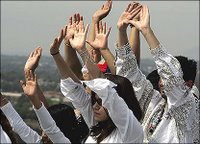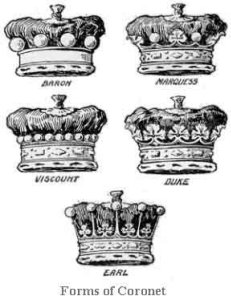Sei que é um pouco longo mas vale a pena ler. É sempre bom ver que se pensa nas pessoas como pessoas, o que em alguns sítios é difícil... Não vos passo o link porque às vezes o acesso não é fácil
Called by God to HelpBy ROGER MAHONY
Los Angeles
I'VE received a lot of criticism for stating last month that I would instruct the priests of my archdiocese to disobey a proposed law that would subject them, as well as other church and humanitarian workers, to criminal penalties. The proposed Border Protection, Antiterrorism and Illegal Immigration Control bill, which was approved by the House of Representatives in December and is expected to be taken up by the Senate next week, would among other things subject to five years in prison anyone who "assists" an undocumented immigrant "to remain in the United States."
Some supporters of the bill have even accused the church of encouraging illegal immigration and meddling in politics. But I stand by my statement. Part of the mission of the Roman Catholic Church is to help people in need. It is our Gospel mandate, in which Christ instructs us to clothe the naked, feed the poor and welcome the stranger. Indeed, the Catholic Church, through Catholic Charities agencies around the country, is one of the largest nonprofit providers of social services in the nation, serving both citizens and immigrants.
Providing humanitarian assistance to those in need should not be made a crime, as the House bill decrees. As written, the proposed law is so broad that it would criminalize even minor acts of mercy like offering a meal or administering first aid.
Current law does not require social service agencies to obtain evidence of legal status before rendering aid, nor should it. Denying aid to a fellow human being violates a law with a higher authority than Congress — the law of God.
That does not mean that the Catholic Church encourages or supports illegal immigration. Every day in our parishes, social service programs, hospitals and schools, we witness the baleful consequences of illegal immigration. Families are separated, workers are exploited and migrants are left by smugglers to die in the desert. Illegal immigration serves neither the migrant nor the common good.
What the church supports is an overhaul of the immigration system so that legal status and legal channels for migration replace illegal status and illegal immigration. Creating legal structures for migration protects not only those who migrate but also our nation, by giving the government the ability to better identify who is in the country as well as to control who enters it.
Only comprehensive reform of the immigration system, embodied in the principles of another proposal in Congress, the Secure America and Orderly Immigration bill, will help solve our current immigration crisis.
Enforcement-only proposals like the Border Protection act take the country in the opposite direction. Increasing penalties, building more detention centers and erecting walls along our border with Mexico, as the act provides, will not solve the problem.
The legislation will not deter migrants who are desperate to survive and support their families from seeking jobs in the United States. It will only drive them further into the shadows, encourage the creation of more elaborate smuggling networks and cause hardship and suffering. I hope that the Senate will not take the same enforcement-only road as the House.
The unspoken truth of the immigration debate is that at the same time our nation benefits economically from the presence of undocumented workers, we turn a blind eye when they are exploited by employers. They work in industries that are vital to our economy yet they have little legal protection and no opportunity to contribute fully to our nation.
While we gladly accept their taxes and sweat, we do not acknowledge or uphold their basic labor rights. At the same time, we scapegoat them for our social ills and label them as security threats and criminals to justify the passage of anti-immigrant bills.
This situation affects the dignity of millions of our fellow human beings and makes immigration, ultimately, a moral and ethical issue. That is why the church is compelled to take a stand against harmful legislation and to work toward positive change.
It is my hope that our elected officials will understand this and enact immigration reform that respects our common humanity and reflects the values — fairness, compassion and opportunity — upon which our nation, a nation of immigrants, was built.
Roger Mahony is the cardinal archbishop of Los Angeles.











